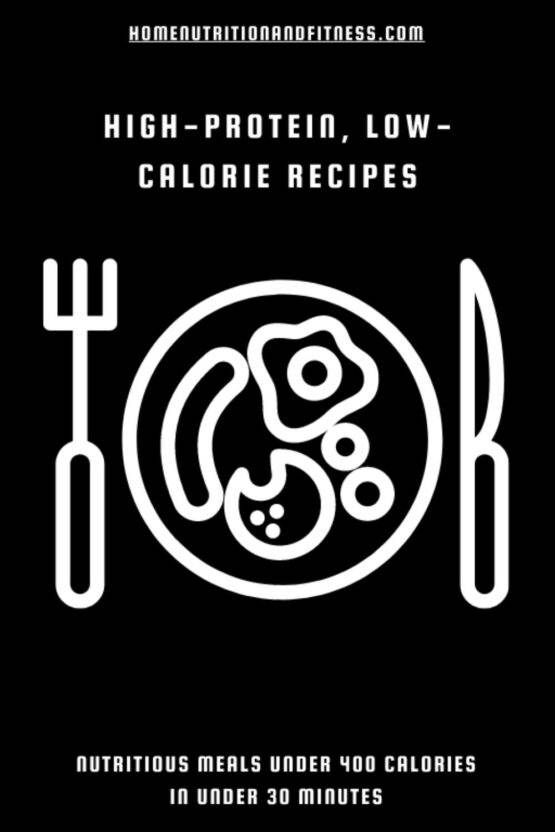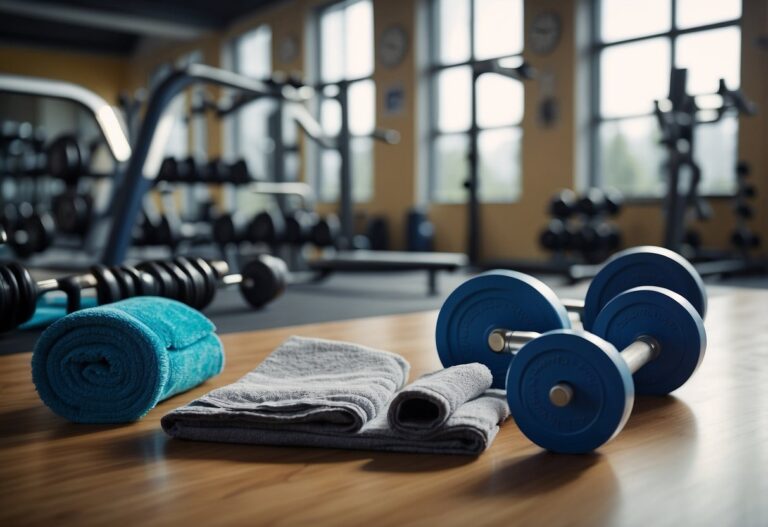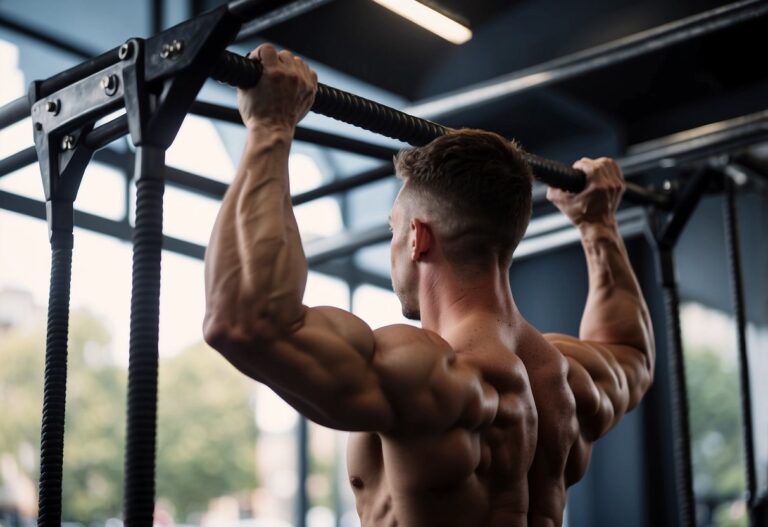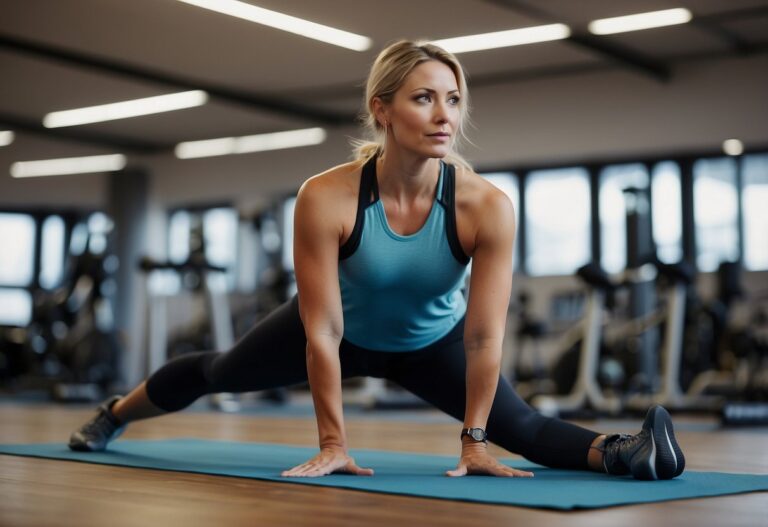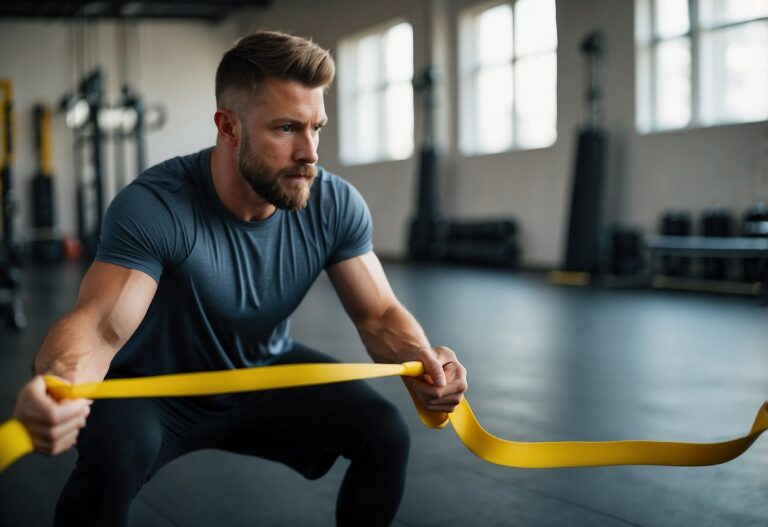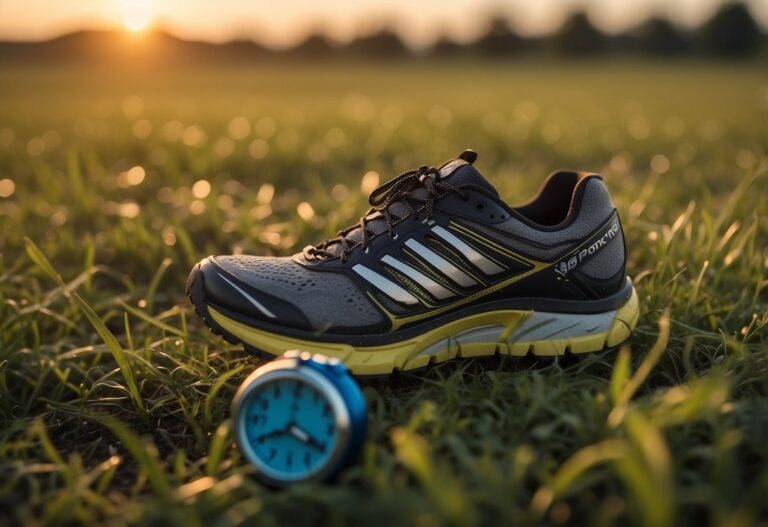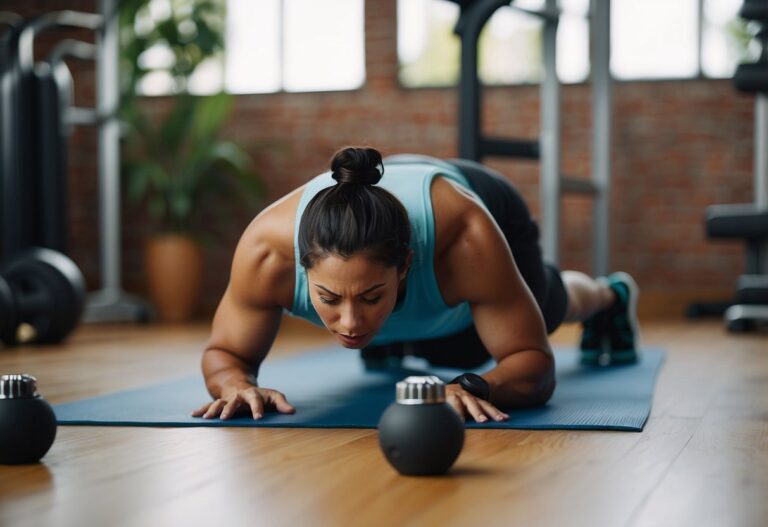When preparing for a workout, what you eat beforehand can make a big difference in your performance and overall experience. Choosing the right foods can help you feel energised, sustain your stamina, and recover more quickly afterwards. By understanding pre-workout nutrition, you can optimise your energy levels and get the most out of your exercises.
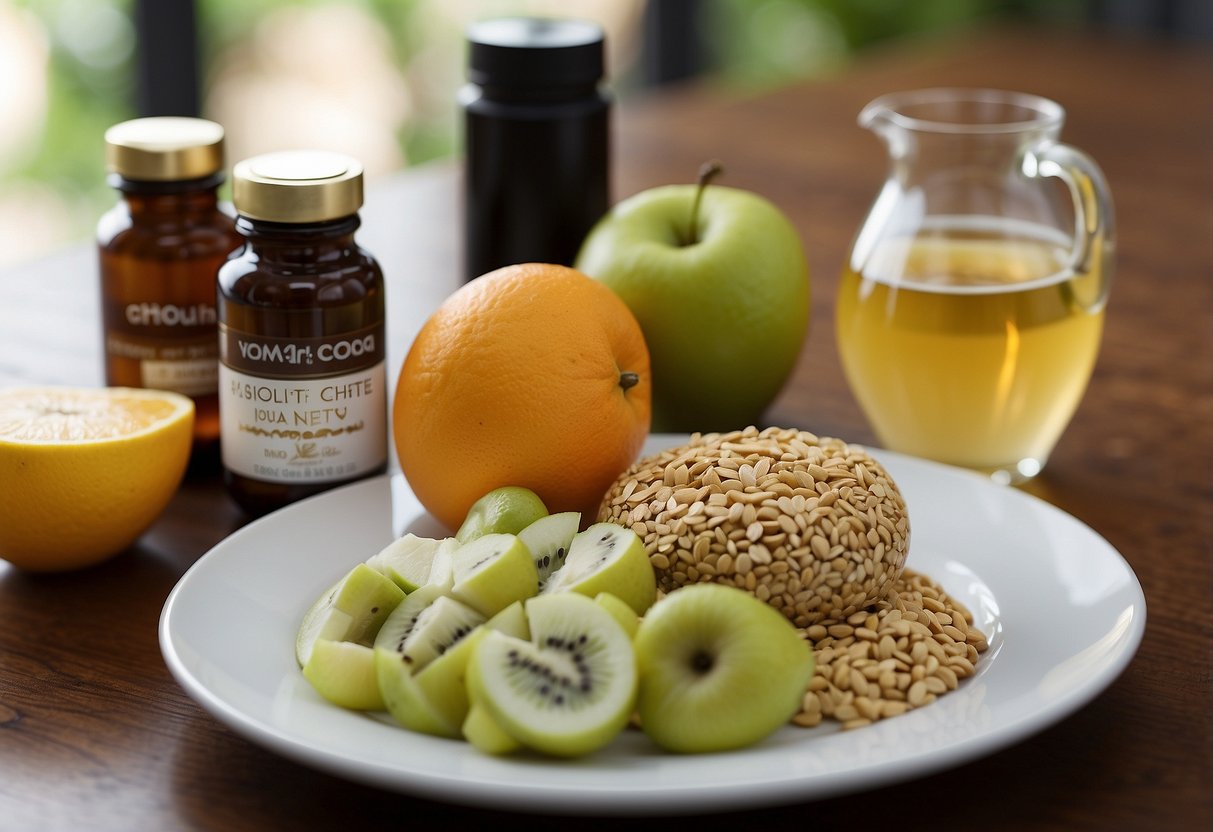
It’s important to think about how different foods and timing can affect you. This can be the key to a successful and enjoyable workout. Whether you’re a seasoned athlete or just starting out, focusing on your pre-workout meals can lead to noticeable improvements in your fitness journey.
Have a balanced meal 2-3 hours before your workout
To get the most out of your workout, it’s important to eat a meal with carbs, protein, and fat a few hours beforehand.
A simple example is having a veggie omelette with a side of whole wheat toast. This gives you sustained energy and keeps you feeling full.
Another good option could be a chicken salad with mixed greens and quinoa. This combination offers a great balance of carbs and protein.
If you’re looking for a quick fix, try Greek yoghurt with some fruit and a handful of nuts. It’s light but packed with nutrients.
By planning your meal to include these elements, you’re setting yourself up for a more effective workout.
For more ideas, check out this guide to pre-workout meals.
Include Lean Protein Sources Like Chicken or Fish

Including lean protein sources like chicken or fish in your pre-workout meal is beneficial. Chicken breast is a popular choice because it’s low in fat and high in protein. This helps your muscles recover and grow.
Fish, such as salmon or tuna, is another excellent option. Fish contains omega-3 fatty acids, which are good for your heart and overall health.
Consider this: If you’re planning an intense workout, try having a small portion of grilled chicken or a couple of fish fillets an hour before starting. This can provide the nutrition you need without making you feel too full.
Feel free to mix it up with other protein-rich choices like tofu or eggs if you’re looking for variety.
Choose Complex Carbohydrates Such as Brown Rice or Whole Grain Pasta
Choosing complex carbohydrates like brown rice or whole grain pasta before your workout can provide steady energy. These carbs break down slowly, helping you avoid energy crashes.
Brown rice is a great choice. It’s easy to prepare, versatile, and pairs well with many dishes. Try adding vegetables and a lean protein for a balanced meal.
Whole grain pasta is another excellent option. It’s high in fibre and can be paired with a variety of sauces and lean proteins. Experiment with different recipes to find what you enjoy most.
Incorporate Healthy Fats from Sources Like Avocado or Nuts

Adding healthy fats to your pre-workout meal can boost your energy levels. Avocados are a great choice. They provide healthy monounsaturated fats and are easy to include in your diet. Try spreading avocado on whole grain toast or adding it to a salad.
Nuts like almonds and walnuts are also excellent sources of healthy fats. They can be a quick snack before you head to the gym. You might find a handful of mixed nuts to be both satisfying and energising.
Seeds, such as chia or flax, are also worth considering. They not only add healthy fats but also fibre and protein. Sprinkle them on your yoghurt or add them to your smoothie.
Using these options, you can enjoy the benefits of healthy fats. They provide sustained energy and can help improve your performance during workouts.
Hydrate with water or a sports drink before you start
It’s important to stay hydrated before your workout. Drink plenty of water the day before you exercise. Aim for at least eight glasses.
On the day of your workout, try to drink about half a litre of water one hour before you start. This gives your body time to absorb the fluids.
Sports drinks can also be a good option, especially if you’re sweating a lot or exercising for more than an hour. They help replenish electrolytes and provide energy. Choose a drink that isn’t too high in sugar.
Remember, feeling thirsty means you’re already a bit dehydrated. Keep a bottle of water or a sports drink handy and take small sips regularly before you begin. This ensures you’re well-hydrated without feeling bloated. Being well-hydrated helps you perform better and avoid cramps or dizziness.
Opt for a protein shake if pressed for time
If you find yourself in a rush before a workout, grabbing a protein shake can be a lifesaver. It’s quick, convenient, and packed with the nutrients you need to fuel your session.
A protein shake can give you a boost of energy and help you stay focused during your workout. It’s especially useful if you haven’t had time to eat a proper meal.
Make sure to drink your shake about 30 to 45 minutes before you start exercising. This timing allows your body to digest and absorb the nutrients, giving you the best chance to perform at your peak. For more details, check this article.
Choosing a shake with 15 to 20 grams of protein and 25 to 30 grams of carbs can provide the right balance of nutrients. This combination helps to enhance strength and stamina, ensuring you get the most out of your workout.
Add Some Fruits Like Bananas or Berries for Quick Energy
You can never go wrong with bananas and berries for a quick energy boost before a workout. Bananas are packed with carbohydrates that provide instant energy. They are easy to digest and help maintain blood sugar levels.
Berries, on the other hand, are rich in antioxidants and natural sugars. Eating a handful of berries before your workout can give you a natural energy boost. Plus, they have vitamins that support your overall health.
Adding fruits like bananas or berries to your diet can enhance your workout performance. They are simple, tasty options that fit into any routine.
Avoid high-fibre foods close to workout time

It’s important to avoid high-fibre foods right before your workout. Foods like lentils, black beans, and chickpeas might be healthy, but they can make you feel bloated.
Too much fibre can cause gas and discomfort. This happens because your body takes longer to digest these foods, which can be distracting during exercise. Imagine trying to do your best when you feel full and sluggish.
Instead, opt for foods that are easier to digest like a banana or a protein smoothie. These choices give you the energy you need without the unwanted side effects.
Steer clear of oily or greasy foods

It’s tempting to grab a quick bite like pizza or burgers before hitting the gym. Avoid these oily or greasy foods. They linger in your stomach longer, making you feel sluggish.
Remember the last time you ate something heavy and felt too full to move? That’s what high-fat foods do. They’re hard to digest and can disrupt your workout.
Instead, opt for lighter options. Think about how much better you feel snacking on a banana or some toast. These choices give you the energy you need without weighing you down.
For more detailed information, check out this article on eating before a workout.
Consider a small snack like Greek yogurt or a protein bar

Before hitting the gym, a small snack can make a big difference. Greek yogurt is a great option. It’s packed with protein, which helps build and repair muscles. You can add some berries for a touch of sweetness and extra vitamins.
Protein bars are another convenient choice. Look for one with at least 7 grams of protein. They are easy to carry and perfect for a quick energy boost. Just make sure to check the label for added sugars.
Both options are light on your stomach, so you won’t feel weighed down during your workout. Besides, they help keep your energy levels steady, making your exercise session more effective.
Nutrient Timing and Importance
Nutrient timing plays a vital role in maximising the benefits of your workout. Eating the right food at the right time can significantly impact your performance and recovery.
Understanding Pre-Workout Nutrition Timing
It’s important to eat a balanced meal before your workout. Aim to eat 2-4 hours beforehand. This gives your body enough time to digest and use the nutrients effectively. If you eat too close to your workout, you might feel sluggish or nauseous.
A balanced meal should include carbohydrates, protein, and a small amount of fat. Carbohydrates provide the quick energy your muscles need. Protein helps in muscle repair. Fat can help sustain your energy levels longer.
For early morning workouts, time is short. Eating around 300-400 calories about 30-60 minutes before can help without feeling heavy. This might include a banana with a small handful of nuts or a slice of wholegrain toast with peanut butter.
Benefits of Proper Nutrient Timing
Timing your nutrition properly can improve your performance. Eating the right amount of calories beforehand can give you more energy and stamina.
Hydration also plays a crucial role. Drink 5-7 millilitres of water per kilogram of body weight at least 4 hours before activity. Close to your workout, drink another 200-300 millilitres.
When you eat a balanced meal at the right time, you might notice you can exercise harder and longer. You’ll also recover faster. This means less muscle soreness and quicker readiness for your next workout.
Proper nutrient timing isn’t just for athletes. Even if you’re a casual exerciser, you’ll feel better and get more out of your efforts. By paying attention to what and when you eat, you can make your workouts more effective and enjoyable.
Macronutrients and Their Roles
When it comes to pre-workout nutrition, understanding the role of macronutrients can help you perform better. Carbohydrates and proteins are especially important because they provide energy and muscle support.
Carbohydrates for Energy
Carbohydrates are your main fuel source. When you eat carbs, they break down into glucose, which your muscles use for energy. This is especially vital for high-intensity workouts. Think about it like filling your car with petrol; without fuel, you can’t go far.
Simple carbs, like fruits and white bread, are good to consume about 30 minutes before a workout. They provide quick energy. Complex carbs, like whole grains and oats, are better if you have a couple of hours before exercising. They release energy slowly, keeping you energised longer.
For example, eating a banana or a piece of whole-grain toast can significantly boost your performance. Including some carbs in your pre-workout meal ensures you don’t run out of energy halfway through. Remember, balance is key.
Protein for Muscle Support
Protein is crucial for muscle repair and growth. When you work out, your muscles experience small tears. Protein helps repair these tears, making your muscles stronger. It’s like having the right tools to fix and improve your car after it has been through a rough journey.
A good pre-workout meal should have some protein. Think of options like a protein smoothie or some Greek yoghurt with fruit. These provide not only protein but also other nutrients that support muscle function.
Consuming protein before working out ensures your muscles have the amino acids they need, which can reduce muscle soreness later. Choices like chicken, eggs, or a whey protein shake can set you up for success, helping you make the most of your exercise session.
Hydration Guidelines
Staying properly hydrated is essential for optimal workout performance and recovery. This section covers why hydration is crucial and the best strategies to maintain hydration levels before, during, and after exercise.
The Importance of Hydration
Hydration isn’t just about quenching your thirst. Water plays a key role in maintaining your body’s temperature, lubricating joints, and transporting nutrients. When you exercise, especially in the heat, you lose fluids through sweat. If you don’t replace these fluids, you risk dehydration, which can lead to fatigue, dizziness, and muscle cramps.
Before you exercise, aim to drink water consistently throughout the day. Consider drinking 100-200ml of water every hour. It’s helpful to monitor the colour of your urine; it should be a pale yellow – neither too dark nor completely clear.
Hydration Strategies
To stay hydrated, follow some simple strategies:
Pre-exercise: About two-three hours before your workout, drink 400-600ml of water. Closer to your workout, consume another 200-250ml of water.
During exercise: Keep a water bottle handy. Sip water regularly, aiming for 100-150ml every 20 minutes, especially if you’re sweating a lot. For longer sessions or high-intensity workouts, consider sports drinks that provide electrolytes.
Post-exercise: Rehydrate by drinking 500ml of water for every 0.5kg lost during the workout. This helps replenish fluids and supports recovery. Additionally, consuming a beverage with electrolytes can further aid recovery.
Real-world Examples
Here’s a simple hydration plan for a typical day of training:
- Drink regularly throughout the day – a small glass of water every hour.
- Two hours before your workout, have a medium-sized bottle of water.
- During your workout, carry a filled water bottle and sip frequently.
- After finishing, rehydrate with a large glass of water, and maybe a sports drink.
Keeping these hydration strategies in mind will help you maintain your performance and prevent dehydration during your workouts.

